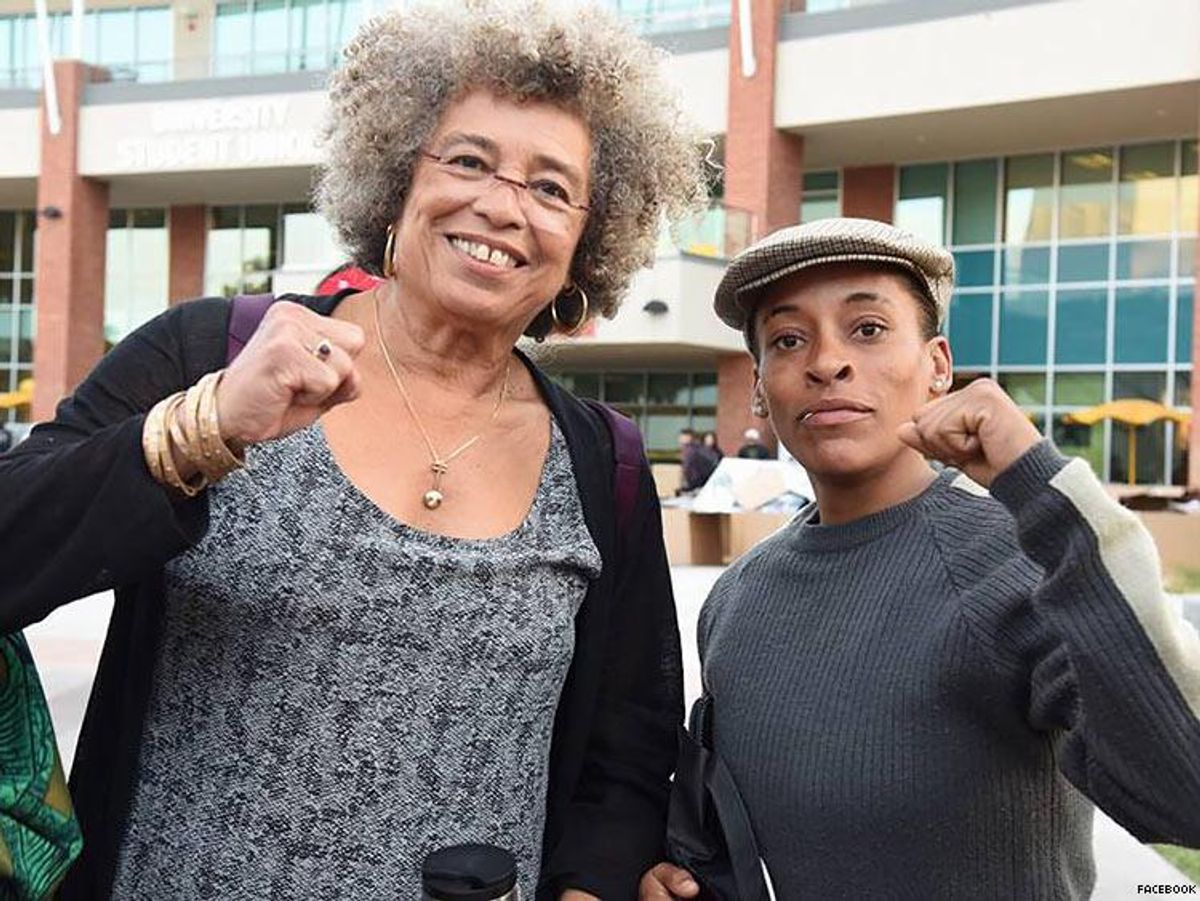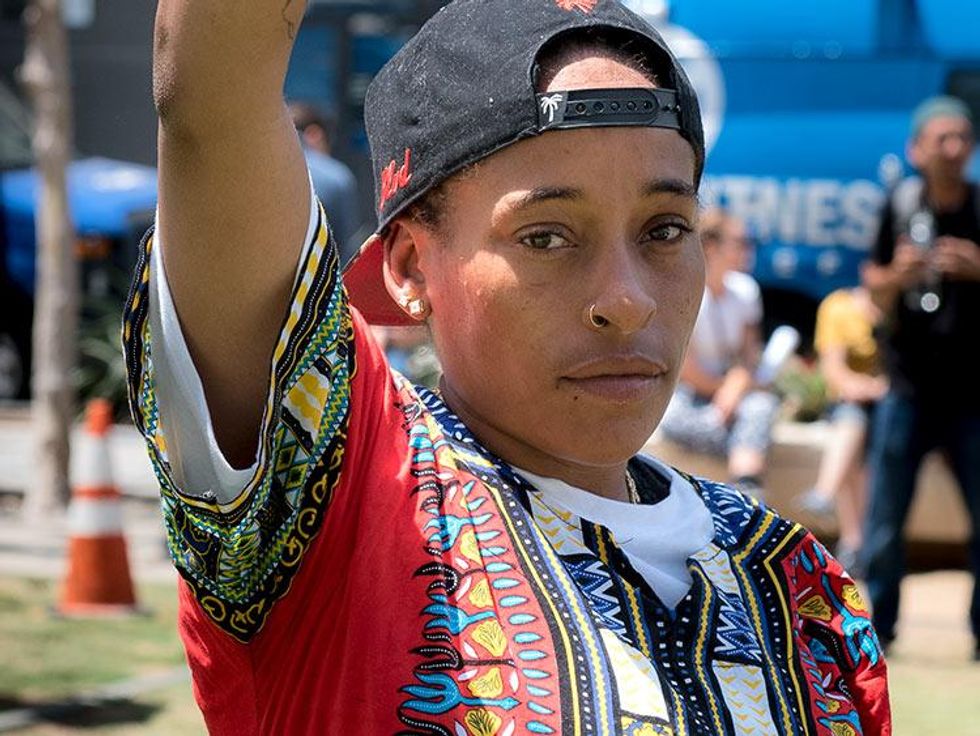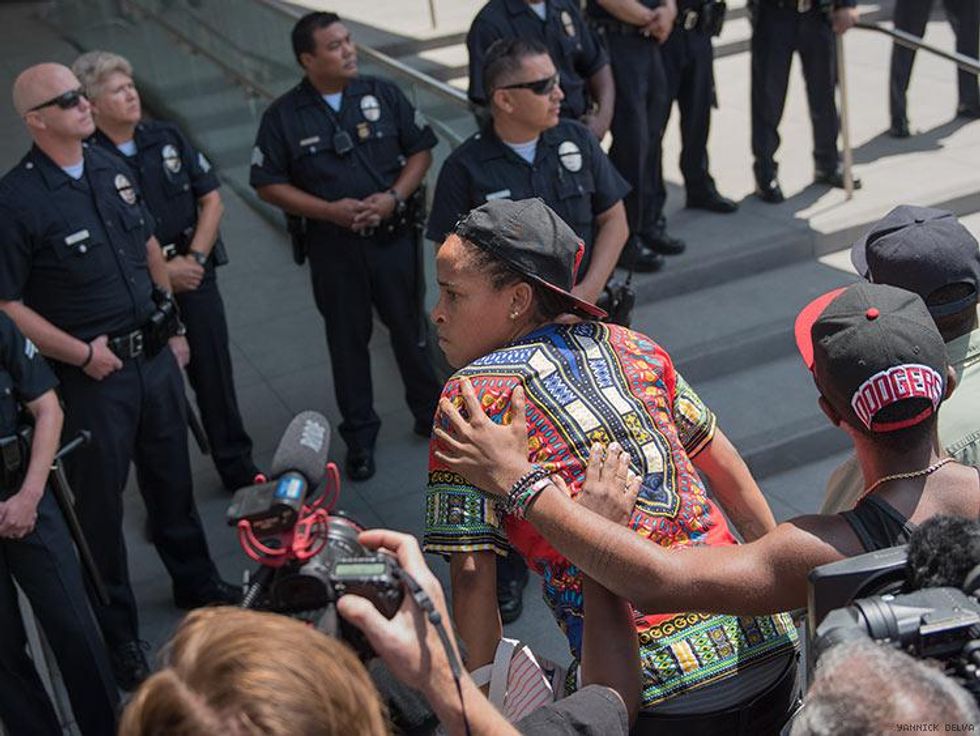Jasmine Richards is fresh out of jail, but she's not taking it easy.
It's only been two weeks since the lesbian Black Lives Matter Pasadena leader was released after spending a month behind bars because of her conviction in June on a charge that was, until recently, known as "felony lynching." Shaun King, the activist and New York Daily News writer, dubbed her "the first political prisoner of the Black Lives Matter movement."
Richards says she's still suffering from post-traumatic stress disorder stemming from her time served, she told The Advocate Tuesday. She's also feeling "shell-shocked" from being confined to a cell by herself, despite being placed in a cell meant for two inmates.
"There's maggots and gnats in the water, so they're not only killing us and suppressing us and keeping us locked up and confined, but they're also killing us with their food in jail, with the water in jail," Richards said Tuesday at a Black Lives Matter rally outside the Los Angeles Police Department's headquarters.
Richards captured national media attention when she was convicted June 1 of "felony lynching" arising from her attempt to intervene in what she and other activists believed was the unjust arrest of a black woman last year.

Although she's no stranger to tense confrontations with police officers, Richards was apprehensive at first to get back on the front lines of the movement for black lives after she was released from jail.
"I was scared," Richards admitted on the lawn adjacent to the LAPD building. "But I remember what Angela Davis told me."
Richards came face-to-face with Angela Davis in May, when the professor, activist, and writer spoke at a Pan-African Studies Forum at California State University, Los Angeles. Richards and Davis share several traits: They are both black and queer, and both served time as political prisoners.
Davis has been an outspoken supporter of the movement for black lives. In June, the University of California, Santa Cruz, professor accepted the Sackler Center First Award, given to extraordinary women who break ground in their fields. During the New York ceremony, Davis was joined onstage by feminist activist and writer Gloria Steinem, who asked her to speak about the Black Lives Matter movement.
"Black Lives Matter, this is what we've been waiting for," Davis told the audience. "This is a historical conjuncture where all the ingredients came together in an amazing way and Opal, Patrisse, and Alicia [the three women who cofounded the movement] were able to read the times and understand that this is what we need at this moment."
During the forum at Cal State L.A., Richards asked the professor what kept her motivated during her own time in jail.
"She said, 'Because I knew that there was people fighting for me, so how could I not fight for them and myself?'" Richards recalled.

Those words stayed with Richards when she met Marcus Vaughn, the husband of Redel Jones, a black woman who was killed by LAPD officers in 2015. They echoed in her mind again when she met the family of Wakeisha Wilson, a woman who the LAPD claims committed suicide while in custody earlier this year -- but too many questions remain for her family to believe that she took her own life. When Richards met the family of Keith Bursey, a man gunned down by police outside a south L.A. liquor store in June, she was still thinking of the words Davis shared with her.
Being a part of the movement and seeing the people who come out to support it "shows me that I can't stop and I won't stop because the work that we are doing is vitally important," said Richards. "It's vitally important; if I stop, I might die."



















































































Viral post saying Republicans 'have two daddies now' has MAGA hot and bothered